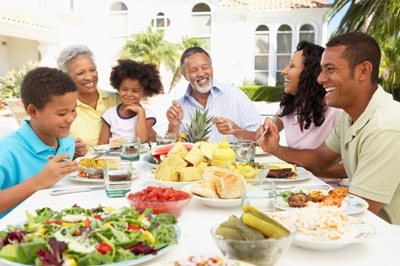People love a good reason to celebrate. Nearly 60% of Americans say they plan to watch a “great deal” or “fair amount” of the Olympics. Australians say they’ll spend $2.7 billion (USD) on Olympic parties. Add in 6 or 7 annual occasions (Superbowl, Valentines Day, Easter, Mother’s & Father’s Days, Memorial Day, Fourth of July, Back-to-School, Halloween, Thanksgiving, Christmas, just to name a few) and you have the makings of retail opportunity.
Recently, at the 12th annual Shopper Insights in Action conference sponsored by IIR USA, Christian Thompson, Senior Director of Shopper Insights at Kellogg Company, shared a bit of their learning on Back-to-School.
IIR USA, Christian Thompson, Senior Director of Shopper Insights at Kellogg Company, shared a bit of their learning on Back-to-School.
Additionally (though Kellogg didn’t say this, they practice it), it makes sense to find the occasions that make sense for your product portfolio and appropriately “window” in order to optimally allocate marketing dollars and new product introductions. Occasion based marketing is critical because that may be the primary time shoppers are shopping your categories. Each business needs to have its own well thought out occasion based marketing strategy.